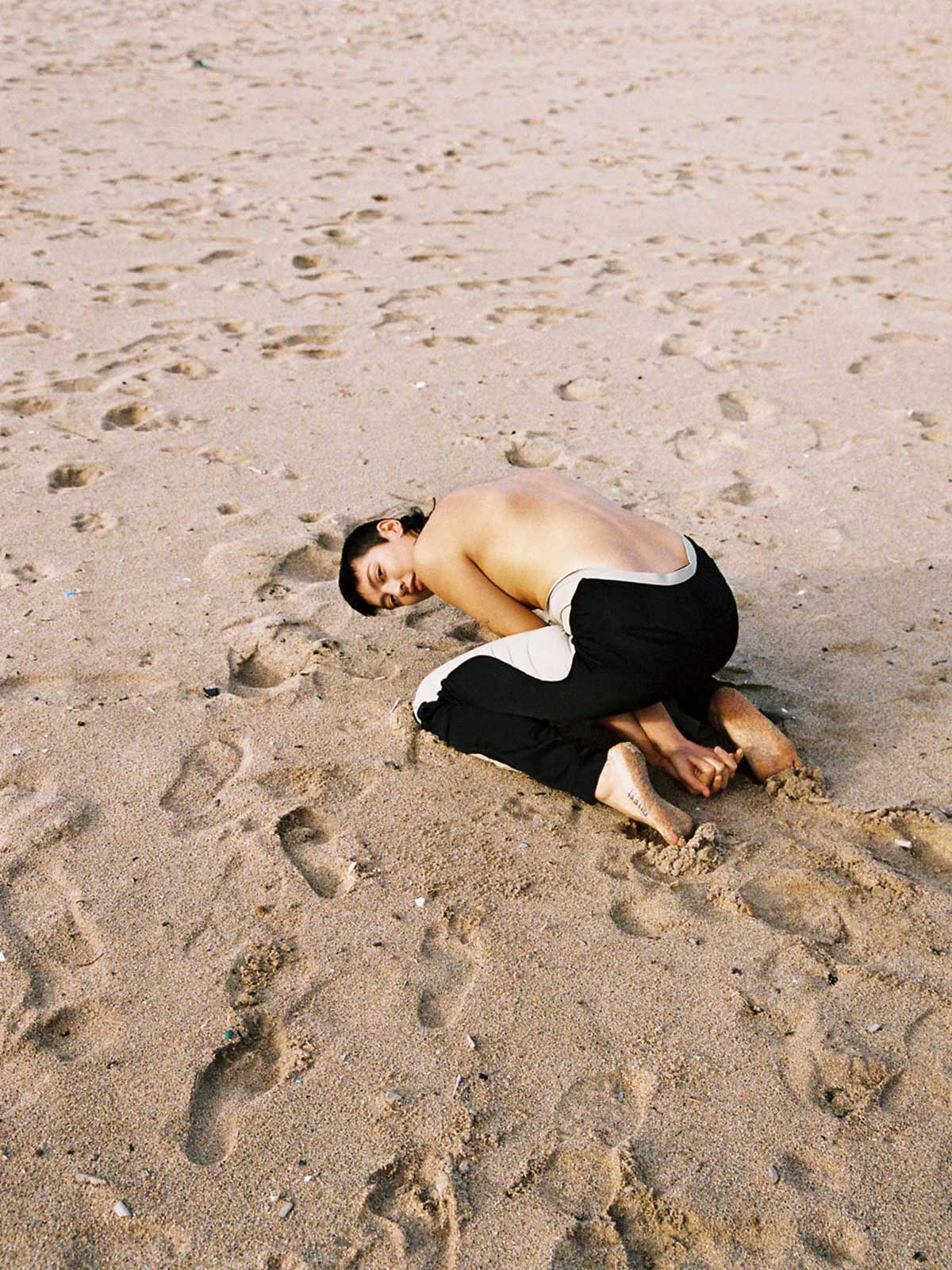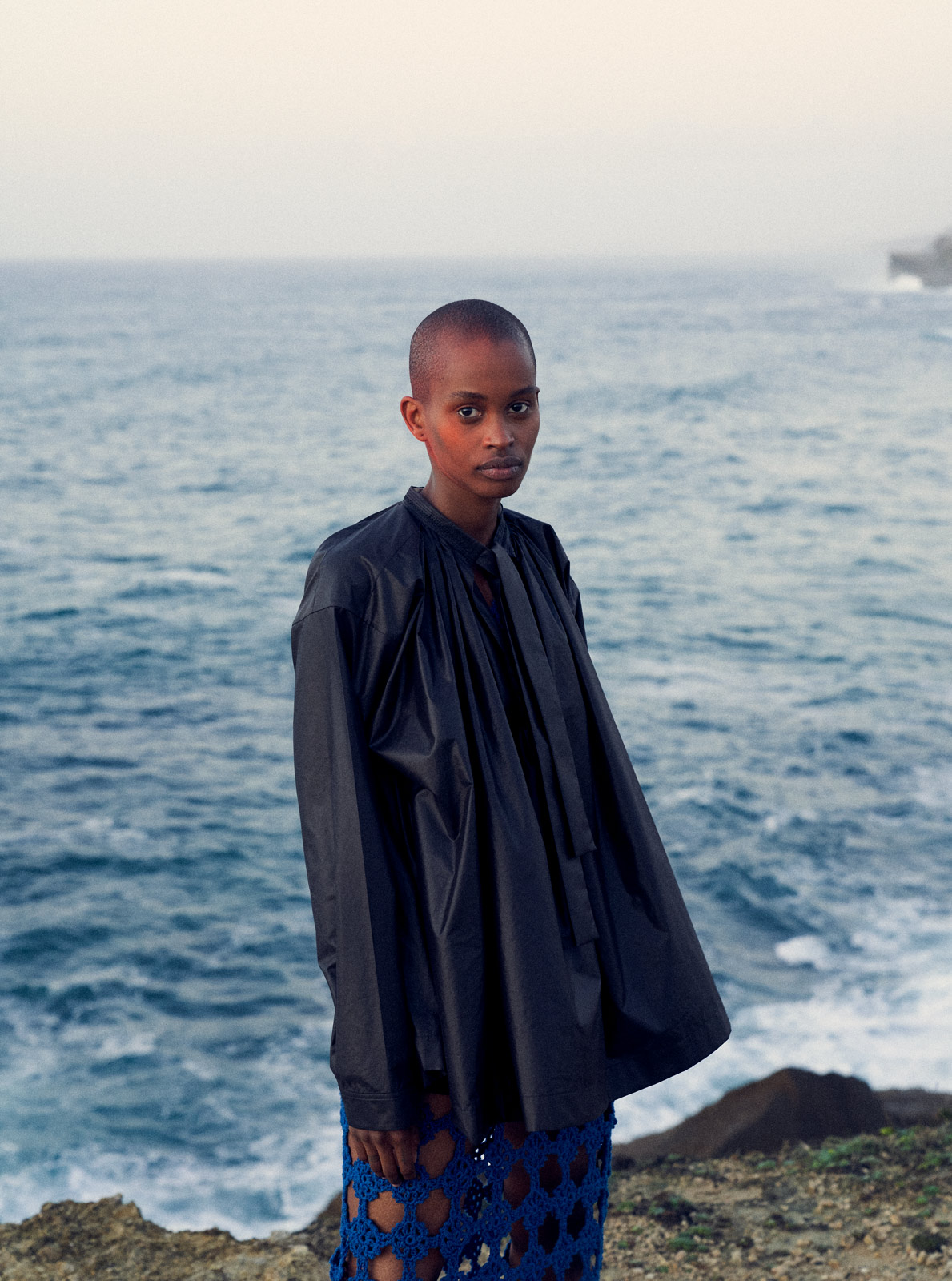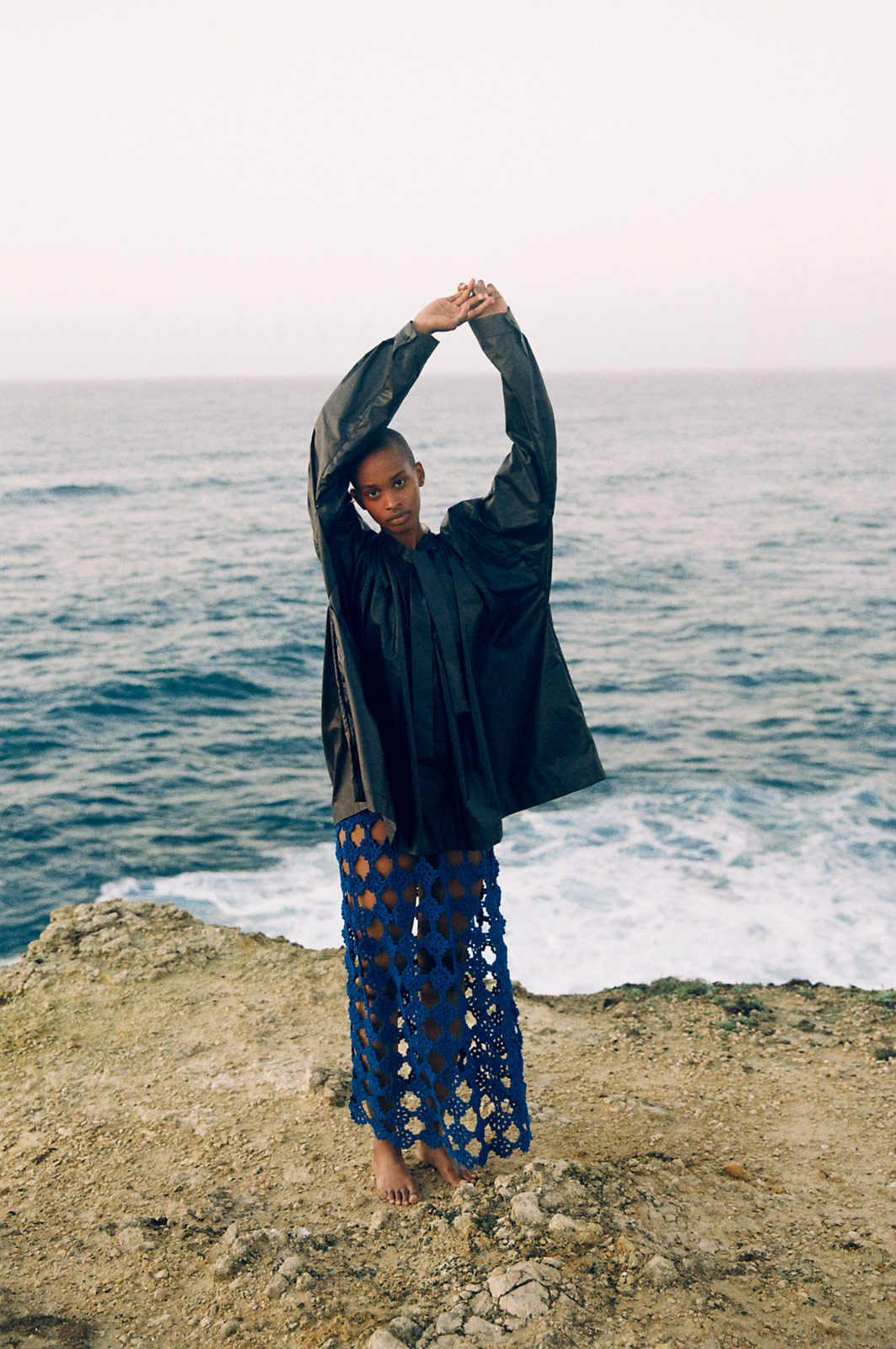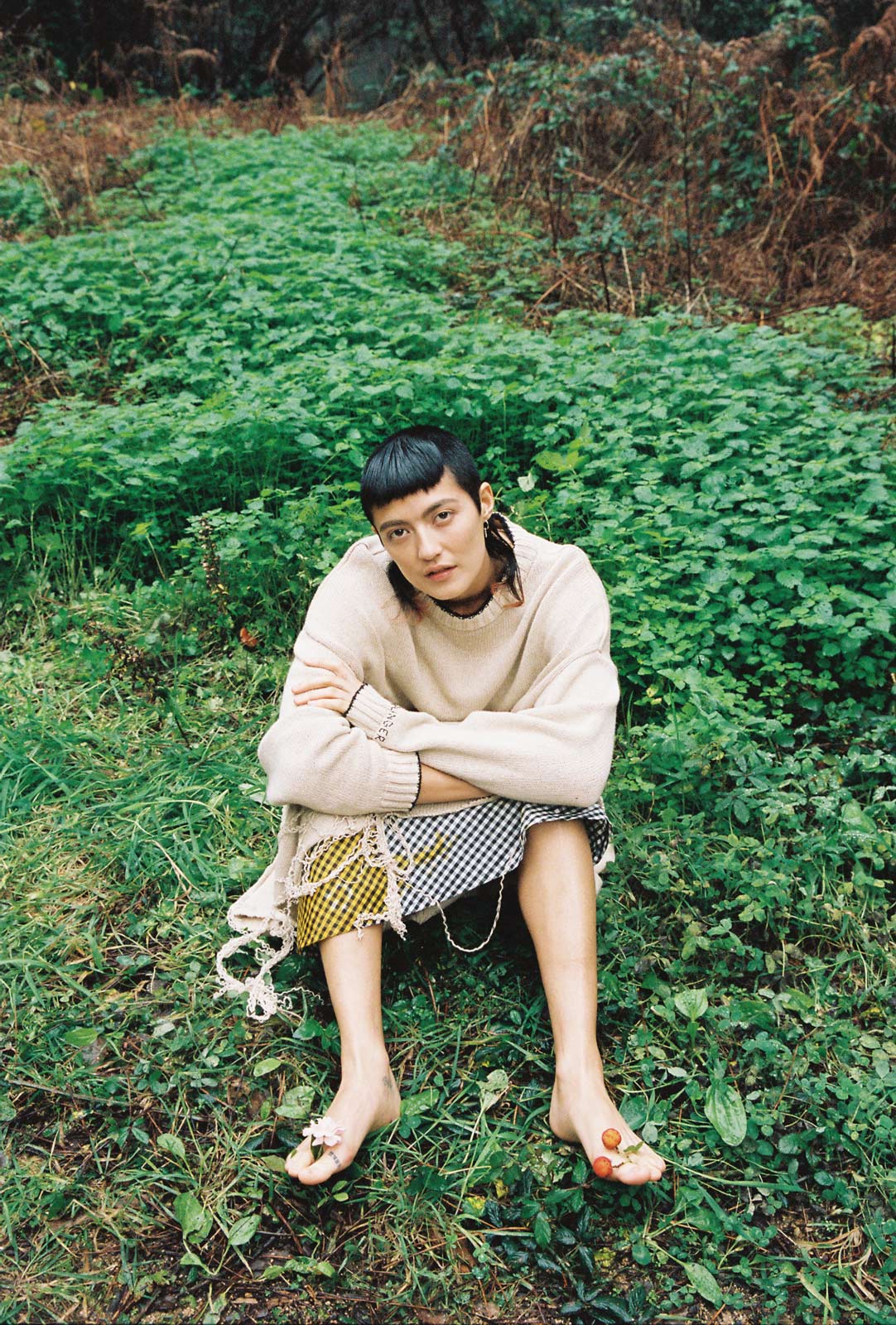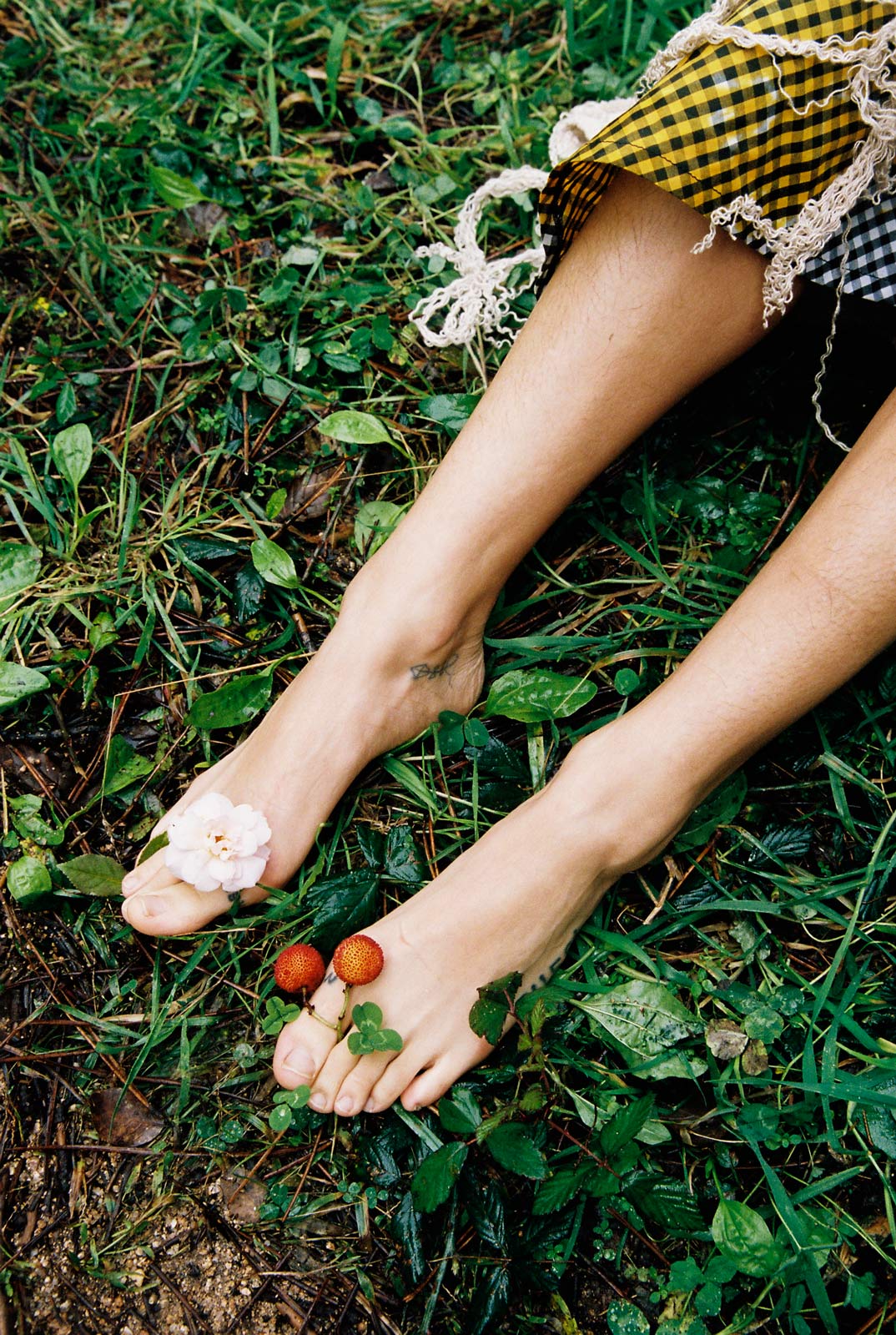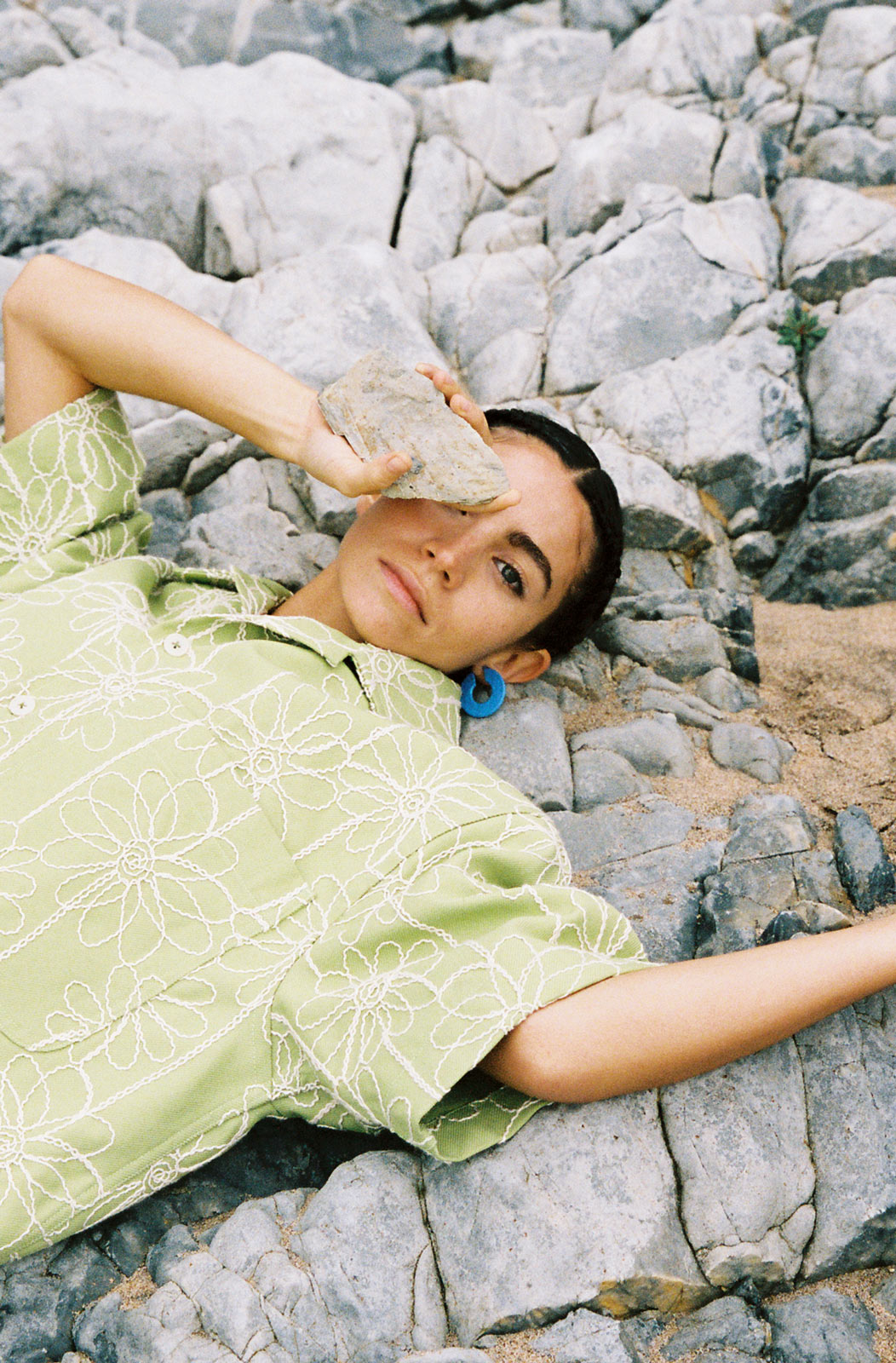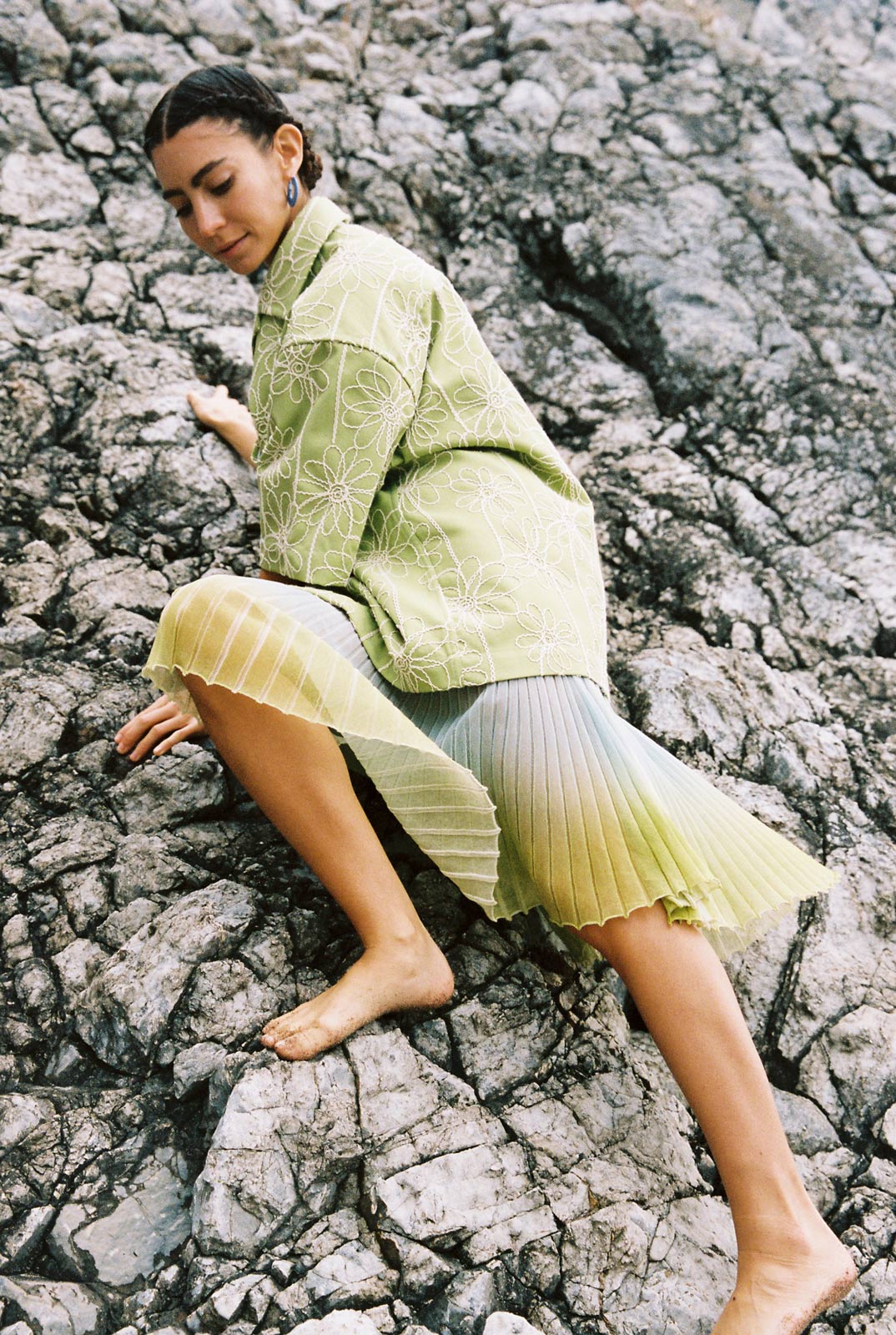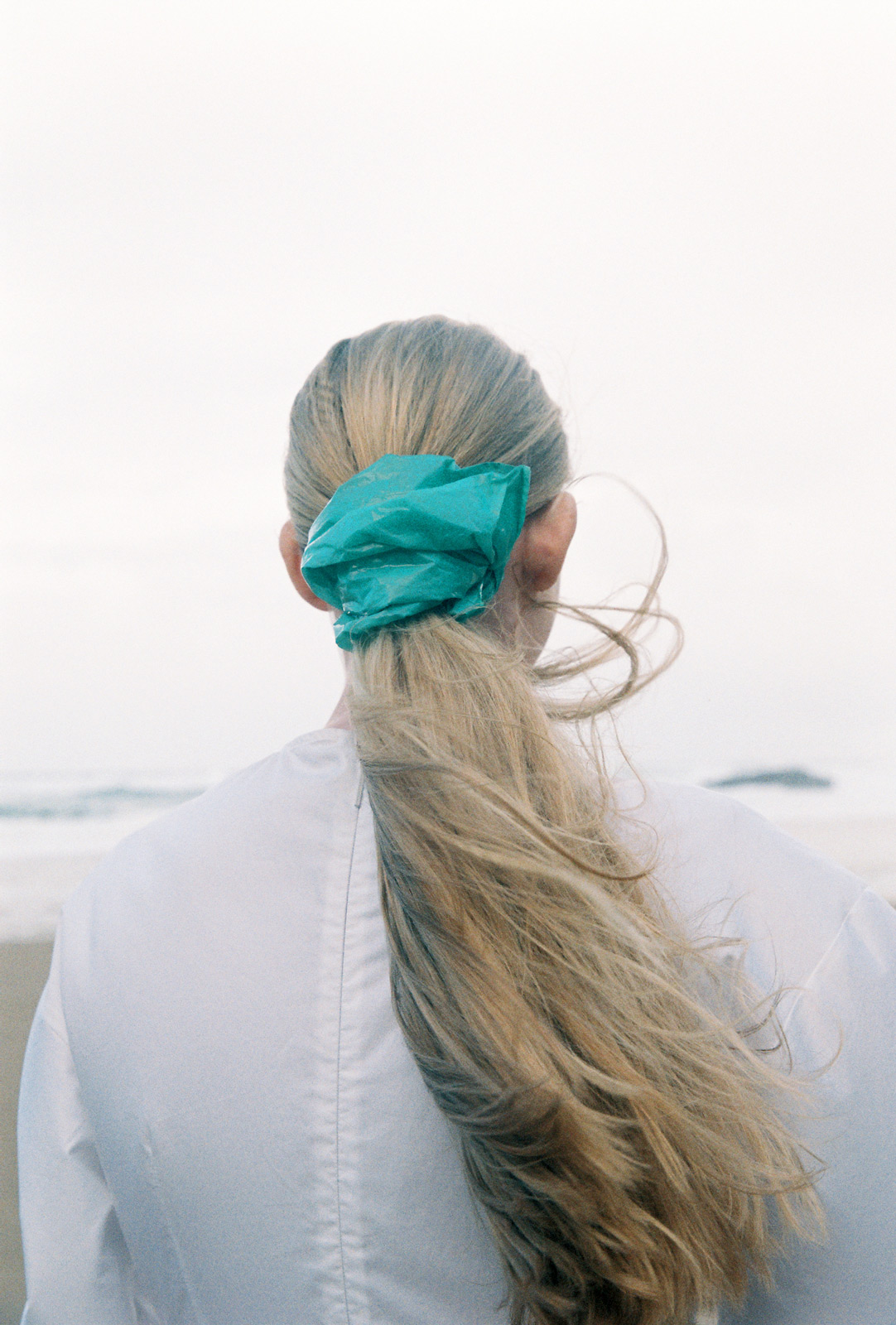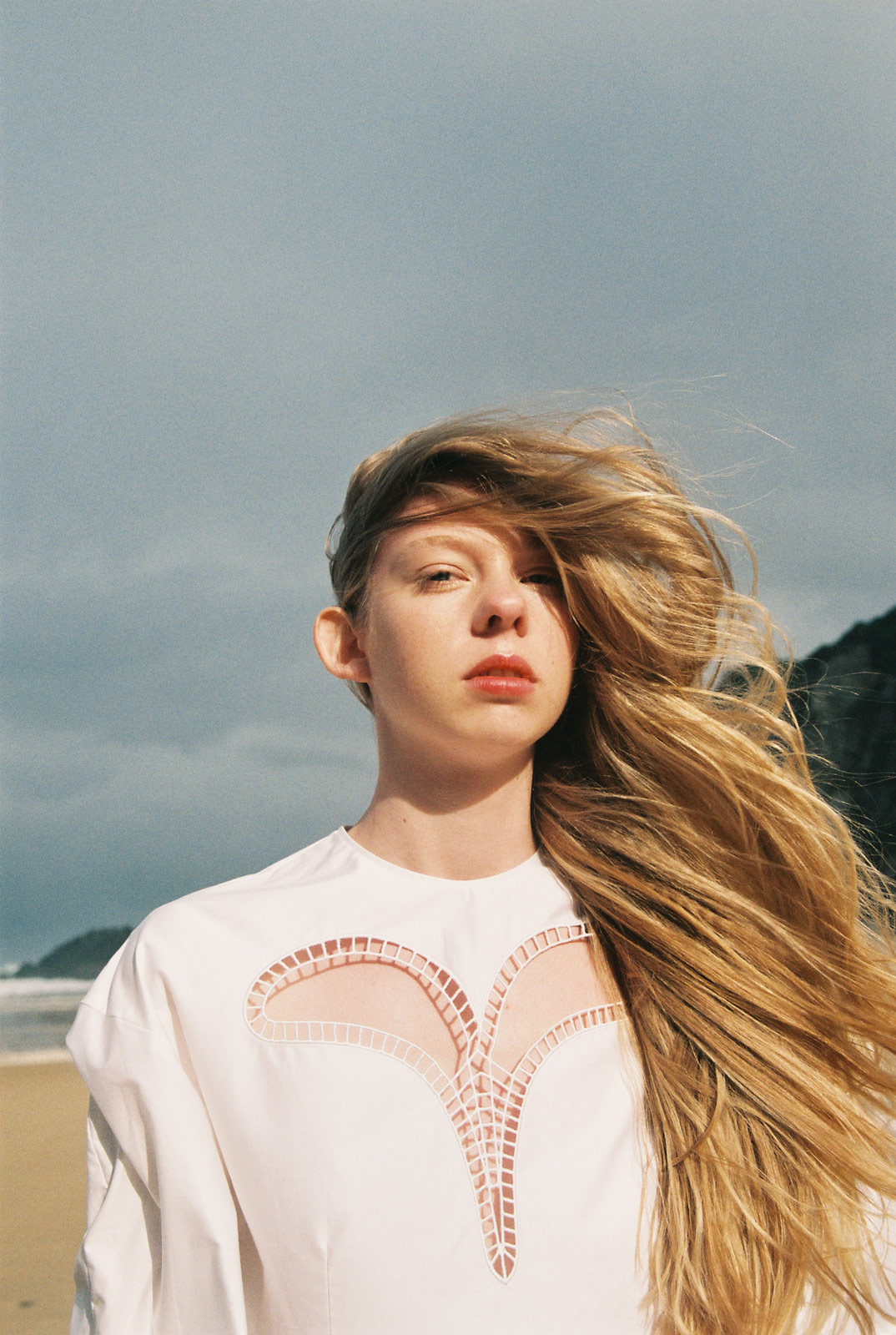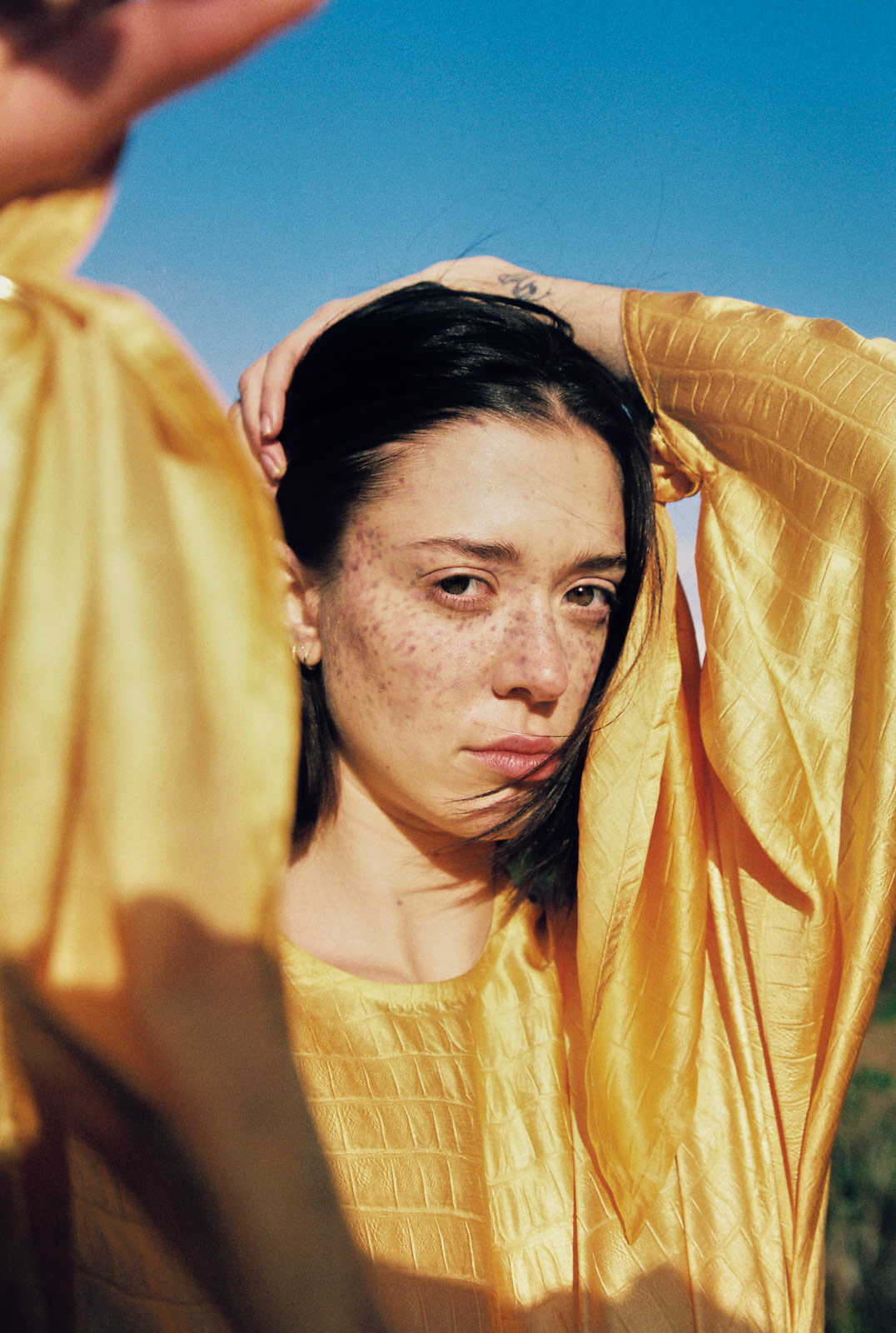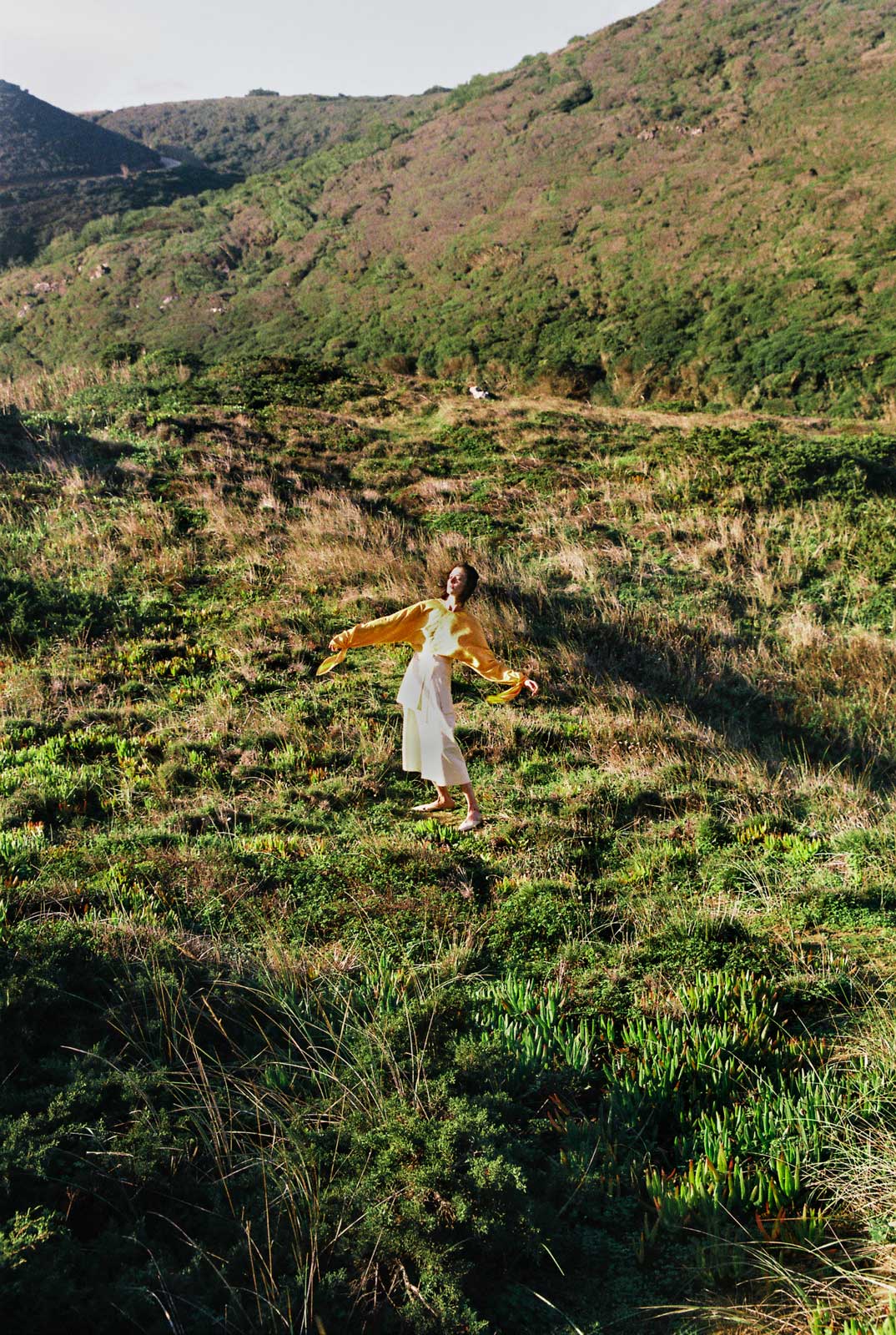Discussing the connection between self-care and sustainability with Ayesha Tan Jones, Nella Ngingo, Jill Temming, Yu Lin Humm, and Maeva Giani Marshall.
Today, when sunsets are rated by heart buttons, breathing clean air and walking on unpolluted sand have become privileges. It is easy to feel disconnected from the truth, the fertile ground of nature, the necessity of its preservation, the understanding of what beauty is.
The fashion industry is a big global polluter, responsible for 10% of the world’s carbon emissions, with little consideration of its destructive environmental impact. We need to grow a world we want to take part in. A world we grow with, that we are aligned with, and that we cherish in the same way it has nourished us, humanity. We have acted like we are untouchable for way too long. We did the harm, we understood. We want to be better. It is not too late.
We say these things, but how can they be lived? And how are individuals actually affected? In five conversations with five (role) models, we examine how the past formed their being, and how new forms of being shape entire communities and what it means to be a woman today. These women come from diverse spaces and places, their unique paths having asked them to redefine their present and how they see themselves. Their stories are connected through overcoming obstacles created by society, economy, politics and—inevitably—nature. And, as they know well, the most important part of it is yet to be written…
Nella Ngingo, 27
Fleeing with her family from the Rwandan genocide in 1994, Nella Ngingo had one—seemingly humble—dream: staying alive and with her family. Today, 13 years later, she is commanding the catwalks of New York, Paris, and Milan. She has a natural urge and motivation to help other oppressed people—the global LGBTQ community, immigrants, and people suffering from racism. Despite fighting these battles, she does it all, by “being a bag of laughter and positivity.”
Zsuzsanna Toth: Tell me your story.
Nella Ngingo: The first thing I always tell people is that where I come from is a huge part of who I am. My family flew from my hometown of Burundi 13 years ago. I saw a lot of things at a very young age, faced war throughout my entire childhood. It is basically all I remember. I moved from a place where I never heard of white people—or the existence of a difference—to a whole new culture, with different weather and different food. I was 14 then. In Africa you get told that if you ever make it to the west you will immediately have money, you will be immediately loved and have success. But I arrived facing immediate racism—something I wasn’t even aware existed. I didn’t ever think that I was ‘black’ until I was in Holland.
Zsuzsanna: Growing up under such difficult political and social conditions, how did you find your light again?
Nella: Sometimes you are in such a dark place that it starts to feel like home. I remember picking up bullets from our road and playing with them. It shaped the way I see the world. For me, that place was such an ugly place on earth. I never understood how we, people who are all the same, are killing each other over nothing.
Zsuzsanna: As a person of color active in the fashion industry, do you feel a change in the common perception of diversity, equality, and beauty?
Nella: There is certainly a change, I am just not sure its an honest one. No matter how you slash it, diversity has become a ‘trend.’ We should focus more on inclusivity than diversity. Of course it starts with that: a few models with different backgrounds, and just like that, a medium becomes diverse. But we need to be included. We need our own platforms, black-owned businesses, black-owned makeup brands. We need to be behind the scenes. We need more editors who make sure everything is published correctly, more stylists, more makeup artists, who know how to work with our hair structure…
Zsuzsanna: Which brings me to your hair style…
Nella: My hairstyle pays homage to my ancestors. I never had long hair. At school we all needed to have the same uniform. Anyone I ever looked up to looked like me. If you are in a place, where your look is embraced, you don’t ever feel the need to look ever different. Now it is an active choice. Yes, most of my childhood I grew up loving myself and how I looked, so I couldn’t become somebody else anymore. As a model, I now transform several times in a day. I put on heels, I get a wig. I enjoy it. Because I get to see different sides, but when I get home I can be me.
Ayesha Tan Jones, 26
Cosmic herbalism, soft self-defense, optimystic dystopia—listening to Ayesha Tan Jones is like participating in a ping pong game of contradictions, which, after dissolving deadlocked ideas and perceptions, make absolute sense. The 26-year-old British-born Eurasian artist believes that organic nature forms the supernatural—and founded new genres and egos to explore the fields in between.
Zsuzsanna: Ayesha, how would you describe yourself?
Ayesha Tan Jones: I am Ayesha, currently exploring form and ways in which I can infuse my art and my audio-oral explorations with magic and healing. Most days I am lucky enough to just follow what feels right. I have always been a practicing artist. In 2014, when I started exploring spirituality, I was expressing it in the form of conversations with an alter-ego called Una Jynxx, who was also somewhat my healer, my therapist. She helped me define myself.
Zsuzsanna: Your background is very diverse. How did your heritage inform your practice?
Ayesha: My mother is Chinese-Malay and my father is from a small island near Wales called Anglesey, the last druid stronghold when the Roman empire got in. I can definitely feel it in my blood [laughs].
Zsuzsanna: What projects are you working on as an artist?
Ayesha: In 2016 I started working on ‘Indigo Zoom,’ a half-hour film based in the alternative universe of Una Jinx. Indigo Zoom is a genderless character trying to find fresh air in a suffocating city. I developed it based on the fact that London exceeded its [annual] pollution limits within 15 days of January. That is also when I started talking about ecological issues in my work. That project has now evolved into an opera with electronic music that plays in a post apocalyptic future. A 45-minute version of it was shown at the Serpentine Gallery last year. The next part is out in 2020.
Zsuzsanna: Living in a city like London, do you sometimes feel demystified and disconnected from nature?
Ayesha: You need to do whatever is in your power to catalyze change. I created a genre that I live and work by. It is called ‘optimystic dystopia’ and it is exactly about finding that balance in a place like London. To be honest, it is a very potent place for the POC and queer communities, which, for me, identifying with both, is a very positive aspect. Facing the unignorable climate crisis, what makes you feel hopeful? This might not sound helpful, but earth will be fine without us. We are just parasites. Once we die, the planets will take over again. And when we pass, we might still exist as something else.
Yu Lin Humm, 28
Trying to introduce Yu Lin Humm is like trying to explain planet earth to a species that hasn’t visited it before. She grew up in a multi-cultural family and lived in cities like Milan, Berlin, New York, Sicily, and Lisbon. Equally diverse are her creative practises and professions. Yu Lin has worked as a chef, a model, a musician, a photographer, and a teacher of Qi Gong—an ancient Chinese practise of coordinated body-posture, breathing and meditation, and Timani (a new healing form for musicians). Her biggest aspiration? Changing the inflamed world through subtle realignments.
Zsuzsanna: Being constantly surrounded by a number of cultures and forms of expression, what was the most significant value in your upbringing?
Yu Lin Humm: I was raised like a monk. I was always very, very grateful for everything I got; every drop of water, a roof above my head. I was aware that most things were not well-distributed in the world. Nature doesn’t make poverty, we are creating this. I always wanted to change it. I even aspired to be a lawyer. My first studies were law and politics.
Zsuzsanna: Why didn’t you?
Yu Lin: I was a little bit too much on fire. [Laughs] I would have wanted to change everything all at once.
Zsuzsanna: You work with photography, ancient healing forms, music, and words. Is there a way to combine all these practices?
Yu Lin: I am currently preparing an exhibition called Immersive Inflammation, which is based on the fascia in our bodies. A lot of it emerged from Timani, a healing form my cousin developed, based on the counter-influence of music and the human body. It is your body that makes the sound actually, the instrument just reacts. If your body is not aligned, it will not sound well.
Zsuzsanna: Where do you collect your energy for all that?
Yu Lin: A lot of it comes from meditation, especially Vipassana (silent retreat), which creates so much space for me. Then there is Qigong, which I also teach. It’s a big part of who I am. I really want to reintroduce people to the natural intelligence we have. That is the best activism you can practice, getting people out of this inflammation state. If we start practicing something that takes it away, if we align internally and transfer this into the earth, everything might balance eventually. We have this connection. We have this power. And the more we work on our inside, the more we save the world.
As a millennial, one is faced with two possible futures. There is the one we imagined as kids: a perfect, high-tech, functional, fun adventure. And there is the one we are facing now, a space filled with the consequences of humanity’s past actions. How does it feel to grow up as only the latter seems possible? Jill Temming, 18, is part of a rising group of teens who prefer being connected to nature than wifi.
Zsuzsanna: Who are you and when did you start modeling?
Jill Temming: I am just Jill from Marienfelde in Holland. I grew up as one of 600 people in a small town. Modeling just happened to me a few years ago. I was very surprised.
Zsuzsanna: How did common definitions of beauty inform the way you see yourself?
Jill: I was always very insecure about the way I look, especially because of my ears, they are not symmetrical. Until the day I had my first job, I didn’t believe they would seriously consider me. I actually don’t believe in someone being or not being beautiful. Beautiful is an opinion. Beauty is being yourself and allowing yourself to be yourself.
Zsuzsanna: Being raised in a rural area, how do you feel about the big [fashion] capitals?
Jill: When I first arrived in Milan, I was shocked. I cried. I am used to cities now, but I can’t believe so many people grew up in these places. Humans belong to nature.
Zsuzsanna: How do you reconnect?
Jill: I go to parks and just breathe air from the trees.
Zsuzsanna: How do you feel about the future?
Jill: Sometimes I just want to close my eyes and not think about what is happening in the world right now. Because of my upbringing I really know what nature is. And how to cherish it.
Miami-born, Paris-based Maeva Giani Marshall has often been called ‘the freckled one.’ What looks like a charming natural feature is the result of hyperpigmentation that followed a medical treatment for a serious illness. It was just after Maeva’s life as she knew it almost ended that she started a new one as a model, fighting for diversity and defining a new norm.
Zsuzsanna: You started modeling quite late, not even two years ago.
Maeva Giani Marshall: Everything in my life changed in the past couple of years. I just discovered a lot of things I loved and which are new to me. Modeling and painting, looking for a house outside the city, perhaps opening a restaurant soon… Life is so short, I need to try everything I can.
Zsuzsanna: How do you describe yourself to a stranger?
Maeva: I am really open to people. I am not judgmental. I am trying my best to give the best energy everywhere I go. I am optimistic.
Zsuzsanna: You had a serious disease that resulted in a year spent in a wheelchair. It must have been very difficult to redevelop optimism after that experience.
Maeva: To be honest, I didn’t really mind it. My friends were crying, my mum was crying, but I just thought, ‘Yeah, that’s life.’ What is meant to be is meant to be. It taught me that you simply cannot always be in control. There are no problems, there are only solutions.
Zsuzsanna: When you got scouted, your skin already showed hyperpigmentation. Did it ever feel wrong or strange being booked for a look that will always remind you of the most difficult time of your life?
Maeva: My look is not who I am. I am not just a freckle. In the beginning, people were so mean that I was considering an operation. Then I learned to accept. Often I still feel like an ‘attraction,’ but I am super happy because I represent diversity in my own way. The fact that diversity became ‘trendy’ is somewhat dangerous as well. Because trends, as we know, tend to pass… I used to think one day it will go back to the supermodel stereotype; white, blonde, and skinny. But we—and I am talking about us as different women—are the majority; people of color, with freckles, with a normal, healthy weight. The other day I got a postcard from a girl saying, ‘Thank you so much. Because of you I can walk my dog in the daytime without makeup.’
Zsuzsanna: What is your relationship to nature?
Maeva: Living in Paris, I am mostly searching for it. What I often do is go out and find a tree to hug. My mum once told me that in order to stay connected to my passed grandmother, I just need to hug a tree, any tree. Nature and the body are the biggest forces ever.
Models Yu Lin Humm, Ayesha Tan Jones at Anti Agency, Jill Temming at The Claw, Maeva Giani Marshall and Nella Ngingo at Premier Model Management. Hair by Susanna Jonas. Make Up by Ischrak Nitshcke. Casting by Sarah – Maria Booth. Styling assistant Sophia Steube.


